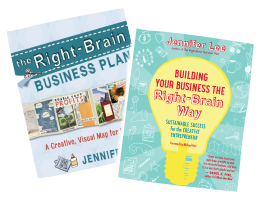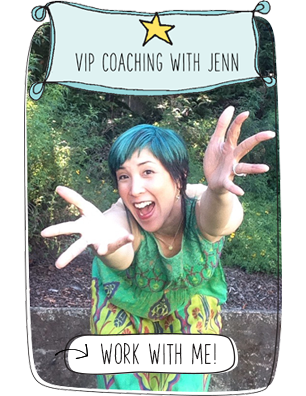
Guest post by by Cass Mullane, Entrepreneur Coach, Right-Brain Business Plan® Licensed Facilitator, Prosper Creatively, LLC
I believe time management is a misnomer… it just isn’t strong enough. “Management” implies that you’re in a reactive mode, responding to things that are controlled by others then passed on to you. “Ownership” puts you squarely in charge. You decide what the priorities are and you schedule them. You decide what is not a priority and comes off your plate. As Stephen Covey says, “You do not prioritize your schedule, you schedule your priorities.” Do you see the difference?
Let’s take a look at something that most of you do at least a couple times each year, attend business conferences. You attend conferences to hone your skills, meet new people and keep sharp for your businesses. But how many of you go with a plan or at least an intention for what you will learn or what information you will come home with? This is an integral part of time ownership. If you can put it into practice at a conference, you can make it part of your normal routine when you are back home.
Before You Go
Why are you attending the conference in the first place? Are you going to network? Are you looking for clients or customers? Receiving skills training? Finding speaking gigs? Looking for new suppliers? Just taking a break from your regular routine? Whatever the reason, knowing your outcomes before you go the conference can help you spend your time wisely and set you up for success.
While You’re There
When you receive the conference materials, check the schedule, the breakout sessions, the vendors, the after-session activities and decide what you want your priorities are. Then make your plan for each day. Of course, flexibility is essential in case things change. For example, you may experience a major perspective shift that may end up up-leveling your thinking which will shift your priorities. You’ve got to be able to roll with the changes while you are there.
While you are there you’ll likely socialize with others. Remember to plan in down time so you can recharge. You may tend to overextend yourself at conferences because there are lots of activities and you do not want to feel like you’ve missed out. Carefully managing your time is essential so you can accomplish what you intended and so you don’t end up exhausted when you return to work.
Finally, remember to hydrate and to SLEEP! Making your physical well-being a priority is part of time ownership.
After The Conference
One of the most effective things you can do after a conference is to hook up with an accountability partner from the conference. It’s particularly fun if you’ve met someone new and you’ll now have a new friend somewhere else in the country (or the world). If it’s someone local, that’s fine too. You can meet with each other face to face and push each other to accomplish what you set out to accomplish at the end of the conference. This is particularly valuable if you’ve experienced a shift in perspective as this requires changes to what was your normal course of business before the conference.
While it’s fresh, take a moment to review your notes and handouts and highlight the useful parts. Pull out key actions and get them on your calendar. Add the juicy bits of information to your appropriate projects and put the inspiring quotes where you can see them or in your journal. Then, put your conference notes somewhere where you can refer to them later.
Follow up with the people you met once you get home, or even before you leave the conference. Send them an email or text, mention something meaningful about your conversation so they remember you and do whatever you said you would do. If you were going to send them something send it. If you were going to schedule a follow up call, schedule it. The simple act of following up will set you light years ahead of most of the other people at the conference with whom they exchanged business cards.
Finally, apply your new knowledge immediately. Work on the things only you can do and let your staff and contractors take care of the other priorities.
Own your time.
 Cass Mullane’s calm, comfortable approach consistently yields positive results for clients. Her business and personal coaching practice, www.ProsperCreatively.com, specializes in delivering solid left brain business skills to right brainers and creatives in a fun, visual way. She’s a best selling author, a contemporary abstract artist and creator of the Cool Stuff Jar™ Retreats.You can also visit Cass on Facebook!
Cass Mullane’s calm, comfortable approach consistently yields positive results for clients. Her business and personal coaching practice, www.ProsperCreatively.com, specializes in delivering solid left brain business skills to right brainers and creatives in a fun, visual way. She’s a best selling author, a contemporary abstract artist and creator of the Cool Stuff Jar™ Retreats.You can also visit Cass on Facebook!










Good article. It also works for art shows. This gave me a little different perspective that can be used for the art festivals I’m attending.